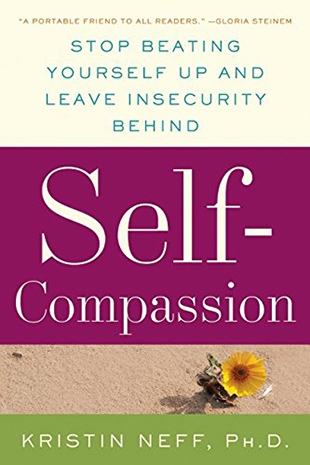Kristin Neff, Associate Professor in Human Development at the University of Texas at Austin, has been researching and studying self-compassion for the past decade. She was featured in the film The Horse Boy which depicted her family's journey to Mongolia to seek a cure for her son's autism.
In this important book, Neff explores the idea that self-compassion provides the same benefits as high self-esteem as a marker of positive mental health, without its drawbacks. As Buddhist writers and teachers have pointed out, suffering comes to all persons and it takes wisdom to know how to handle it. The spiritual practice of compassion enables us to be kind to ourselves when we suffer, stumble, and fail. It also inspires us to identify with the suffering of others and then try to ameliorate their pain.
Why is it so hard to stop being our own worst enemy? Some experts point to the family and those parents who expected too much from their children and constantly made them feel worthless or losers. Others point to the culture's emphasis on individualism and independence which leads to competitiveness and losers being excluded from the winner's circle where they blame themselves for not measuring up. A final group of experts point out that self-critics create problems for themselves with high expectations. They decide they are missing the mark more often than not and plunge into despair.
Neff outlines the central components of self-compassion as being kind to ourselves, recognizing our common humanity with others, and holding our own experience in balanced awareness. She goes on to discuss the benefits of self-compassion: emotional resilience, opting out of the self-esteem game, and both motivation and personal growth.
Neff closes this overview with observations on parenting with self-compassion and an assessment on how it relates to love and sex. She concludes:
"Self-compassion has the power to radically transform our mental and emotional reality. Just like the alchemists of old, who sought to use the philosopher's stone to transmute lead into gold, we can use self-compassion to transmute suffering into joy. By changing the way we relate to our own imperfection and pain, we can actually change our experience of living."
